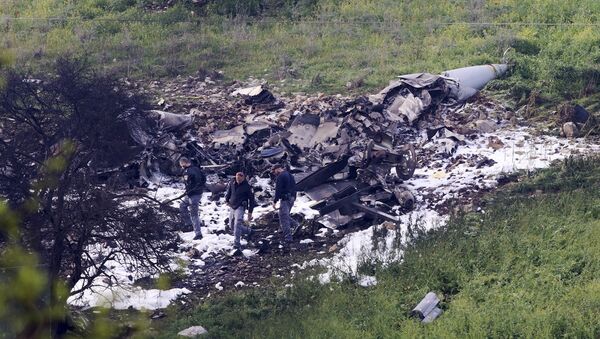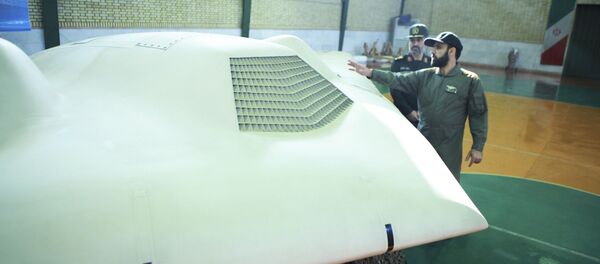While the F-16 fighter plane was plucked from the sky, the pilots were able to eject from the plane, Sputnik noted over the weekend. But it was the first time in decades the Israeli Air Force has lost a plane to enemy fire. The crashed F-16 landed in Israeli territory.
"When the airplane was hit, people were thinking that this was going to be more serious. We're still waiting. Nothing has happened, nothing has shown that there's a need or that there's a will to have this from the Israeli side," Jana Nakhal, member of the Central Committee of the Lebanese Communist Party, told Loud & Clear on Monday while speaking from Lebanon.
While Israel and Saudi Arabia have shown signs of wanting to provoke regional opponents, "the so-called ‘resistance axis,' including the Syrian Army, Hezbollah in Lebanon, and the Iraqi [People's Mobilization Units], have established deterrence against Israeli aggression," said Dan Cohen, a journalist and filmmaker who has worked extensively in Israel, who also spoke with Loud & Clear.
"It's been clear that a war would not necessarily stay outside of Israeli-controlled borders," Cohen noted.
"It's the first time since 1982 that the Syrian military has been able to shoot down an Israeli warplane, so the stakes are really high. But I think it's really telling that after that happened, Israeli Prime Minister Benjamin Netanyahu got on the phone with Russian President Vladimir Putin, and basically said ‘I don't want escalation,'" according to Cohen.
"Both sides understand, to a degree, that no one is going to come out on top in war. It's just a matter of sobriety," Cohen said, "and both sides understand there's really nothing to be gained."
While tensions have increased in recent days, Michael Oren, Netanyahu's deputy minister for public diplomacy, said on Monday that Israel was relying more on Russia as a conflict resolution partner while US President Donald Trump observes from the sidelines.
"The American part of the equation is to back us up, but the US currently has almost no leverage on the ground. America did not ante up in Syria. It's not in the game. The expectations are that the Russians will stop it because I don't think anyone is interested right now in a war," Oren said.
After Netanyahu and Putin spoke by phone, the Kremlin press service said: "the Russian side spoke out in favor of avoiding any steps that could lead to a new round of dangerous confrontations in the region."


